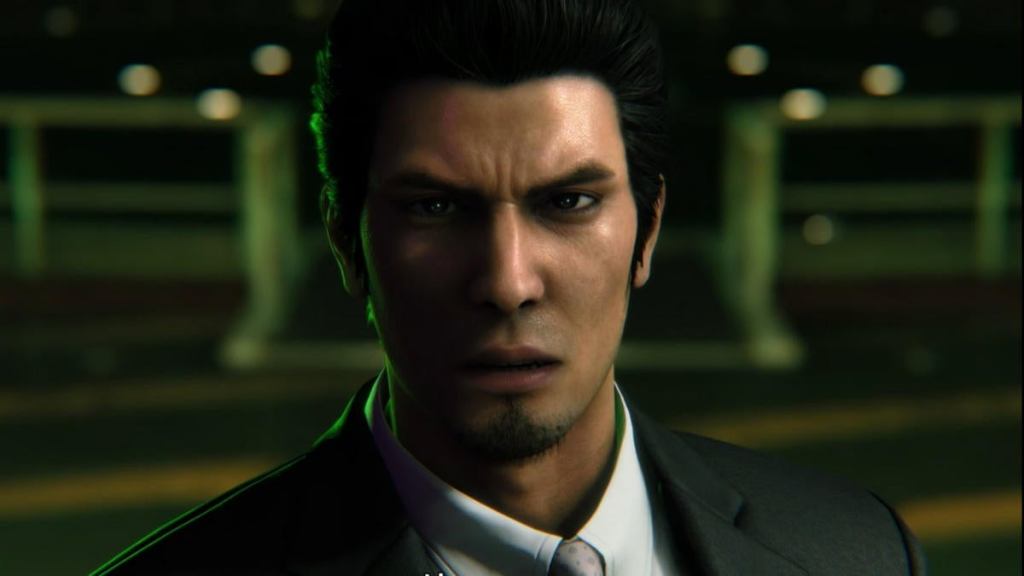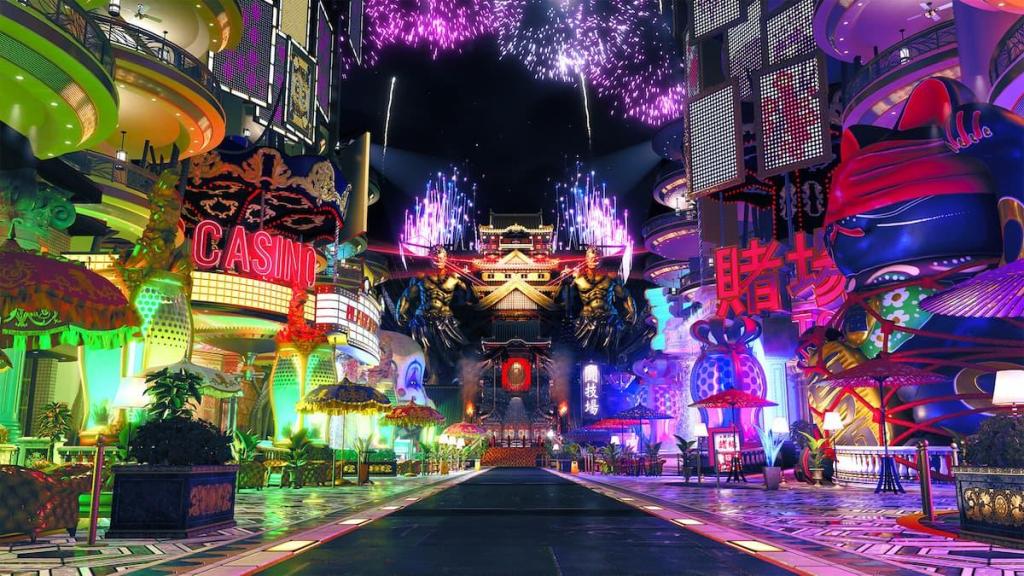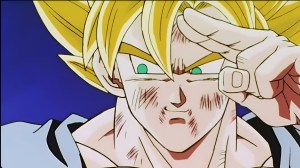Writing a review for Like a Dragon Gaiden: The Man Who Erased His Name is tougher than usual because I think RGG’s latest game is so good that if you have any interest in checking it out, you shouldn’t read another sentence of what I’m about to write. There are basic story elements and game mechanics that I don’t want to spoil for you, but I have to talk about Gaiden with any authority. If you need to be sold more, feel free to read on, but if you’re a fan of the franchise or even Yakuza curious, just go play it. If you have Xbox Game Pass? Even better. Gaiden is available on day one and is worth the monthly fee.
Videos by ComicBook.com
Secret Agent Kiryu

For those of you who weren’t swayed by the opening paragraph, let’s talk about what makes me love Gaiden so much. The first, and arguably the most important thing, is the combat. Yakuza: Like a Dragon took the franchise in a completely new direction by making Ichiban Kasauga’s story into a turn-based RPG. Gaiden puts players back in the control of Kiryu Kazama and fully embraces the Dragon of Dojima’s love for fast-paced fisticuffs. In Gaiden, Kiryu has access to two fighting styles, and while they both have their uses, the new Agent style is the clear winner.
As a long-time fan of the series, I’ve often thought the series combat peaked with Goro Majima’s Breaker style in Yakuza 0. It’s one of the fastest and certainly the flashiest fighting style of any Yakuza protagonist has ever used, but Gaiden puts a new king on the throne. Agent style gives Kiryu access to several James Bond-like special weapons that he can use in combat. It starts with a Spider watch that you can use to lasso foes and either tie them up temporarily or pull them toward you for a powerful punch to the face. Over the course of the game, you slowly add new gadgets that can all be upgraded into formidable weapons.
The best of these are the Serpent loafers which give you the ability to rocket propel Kiryu into his foes like some kind of human bowling ball. And Gaiden loves to put dozens of enemies on the screen at once. It’s hard to remember a time that I had more fun with RGG combat. Add in control of swarms of attack drones and a cigarette bomb, and you have Kiryu’s best kit ever.
With all of this available to you, it might seem like it’d be a lot to manage, and on higher difficulties, that can be true. I never struggled on Standard difficulty, but I’ve played 11 of these games. The good news is that RGG has gone a long way to making this game accessible to anyone regardless of skill level. If you turn the difficulty down to Beginner, you can essentially button-mash your way through much of the combat, and it’ll still look almost as incredible as it does if you master every system. When playing on the lower difficulty, Gaiden switches combat styles for you when it makes sense and even gives you the lee-way to press the wrong button to do Heat Actions and dodges. As long as your timing is down, you’ll pull it off, letting newer players feel as powerful as someone who’s been playing for years.
A Family Affair

In many ways, that same desire to give new players a path to jumping on board extends to the story. RGG has taken steps to onboard newbies to Kiryu’s long journey. As someone who’s been around since the beginning of the game’s popularity explosion in the West, it’s impossible for me to say if it completely works because I know all of these stories, but I think the use of quick flashbacks helps flesh out why Kiryu is doing what he’s doing and what makes him the man he is.
Even if it doesn’t fully work, the central tale in Gaiden is classic Yakuza. There is plenty of drama that sometimes doesn’t really make perfect sense, but RGG does such a great job with its twists and turns that the unevenness doesn’t detract much. I won’t spoil any specifics, but this is a story about Kiryu’s work after he’s given up his name to protect his family at the Morning Glory Orphanage. As part of that, he’s pulled back into the Yakuza in events that run alongside what happened in Yakuza: Like a Dragon. If you’ve played that game, you largely know where Kiryu’s story will end up, but the path to get there is full of surprises.
It also ends with a scene that is as big of a gut-punch as the finale of Yakuza: Like a Dragon. I’m not the type to get overly emotional during video games, but RGG somehow knows how to cut to my core. It’s also worth noting that the ending is the one part of the story that loses the most if you haven’t played previous Yakuza games. If you don’t already know these characters, it probably won’t hit as hard, but I think it’s still effective.
Of course, one of the best parts about this whole story is that Kiryu has adopted a new name. Going by Joryu, the former Yakuza hides his identity by wearing sunglasses. Literally, no one believes that it’s not Kiryu, but he refuses to break character. It gets as ridiculous as you’d expect when he meets old friends, but Kiryu proves that he will do anything to protect the kids at Morning Glory.
It’s also important to note that this is a much shorter main campaign than Like a Dragon fans are used to. Expect to wrap up this five-chapter tale in about 10 hours. That short run-time forces RGG to keep things tight, which generally works in its favor. However, there are several times when the team uses quick cutscenes to move the story forward that I would have loved to play. The best example of this is the times Kiryu’s tale crosses over with Ichiban’s. It’s easy to write off knowing RGG only had six months to get this out the door, but it does feel like a slight missed opportunity.
The Wackier Side of Organized Crime

Another place you’ll notice the quick development cycle is in the substories. In most Yakuza games, these are often one of the biggest highlights. That’s still true here, but there aren’t nearly as many of them, and the way they’re implemented can be frustrating.
Early on in the story, you meet a character named Akame. Truth be told, she is the star of the show and has to come back in some form Like a Dragon: Infinite Wealth. Akame has a city-wide network of contacts and needs you to help her improve it. That means doing tons of mostly boring Stroll ‘n’ Patrol missions. These include things like beating up a few thugs and getting a homeless man a sandwich. Not very riveting.
However, they’re worth doing because finishing a handful of them opens up what would traditionally be substories. Losing out on that feeling of stumbling upon a story is a shame, but this format means you can’t miss anything. As always, the substories are the right mix of wacky and heartfelt. There’s one where you’re helping a young man find love using a ChatGPT knock-off and another that sees you interacting with one of the more famous characters in RGG’s Yakuza universe.
In fact, several of these substories bring characters from either Kiryu’s or the franchise’s past in fun ways. I won’t spoil anyone who pops up, but long-time fans should grind through the Stroll ‘n’ Patrol missions quickly to get to the good stuff.
On top of the substories, RGG has all of the usual side activities you’d expect in Sotenbori: golf, billiards, darts, and the arcade. The standouts for me are Pocket Racing and the Coliseum. Pocket Racing has long been my favorite Yakuza side activity, so I’m a bit biased, but getting back on the track has never felt so good.
The Coliseum also has a new addition, the Hell Rumble. This lets you put together a team of up to 10 NPCs and fight against hordes of enemies. It is as absurd as it sounds and is the perfect opportunity to use Kiryu as a rocket-propelled battering ram. Again, it is hard to remember having this much fun with combat in an RGG game. It’s a blast to play, and I wish there were more matches to dive into so that I didn’t have to stop.
Like a Dragon Gaiden: The Man Who Erased His Name isn’t a perfect game. Some of the things it does are downright annoying. However, it’s exactly what I’m looking for in a Yakuza game. Gaiden has combat that is as intense as it is hilarious. Its central story is full of the twists and turns that keep you on your toes even if you know where it’s going. It perfectly sets up what’s coming next for Kiryu’s journey and leaves enough questions unanswered to keep you on the hook. It even let me see my son Taichi all grown up. Gaiden is a must-play game for any fan of RGG’s brand of oddball action and one of the best games of the year.
Rating: 5 out of 5
Like a Dragon Gaiden: The Man Who Erased His Name is set to release November 9th, exclusively on PlayStation, Xbox, and PC platforms. A code was provided by the publisher for the purpose of this review, and it was reviewed on a PC.








